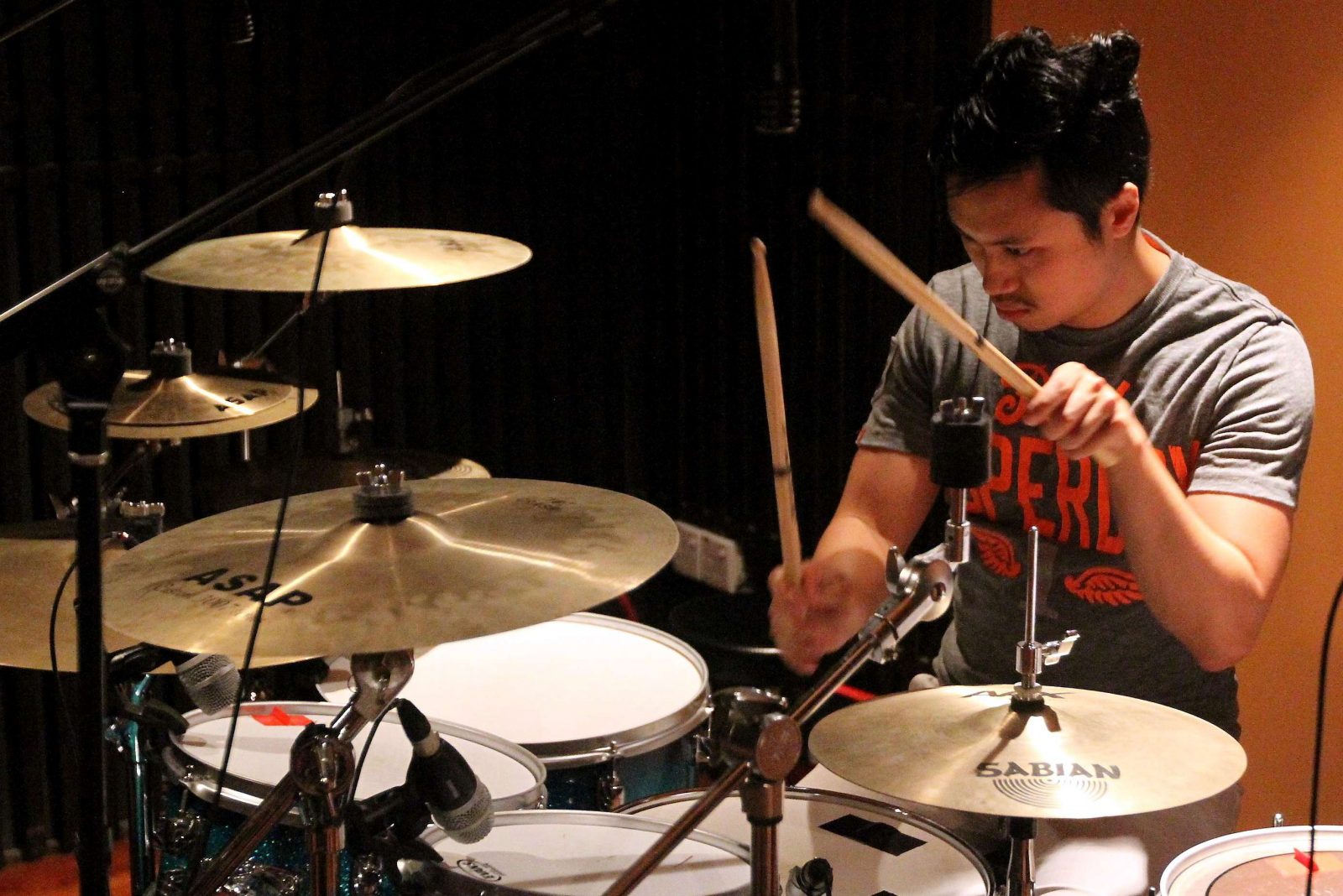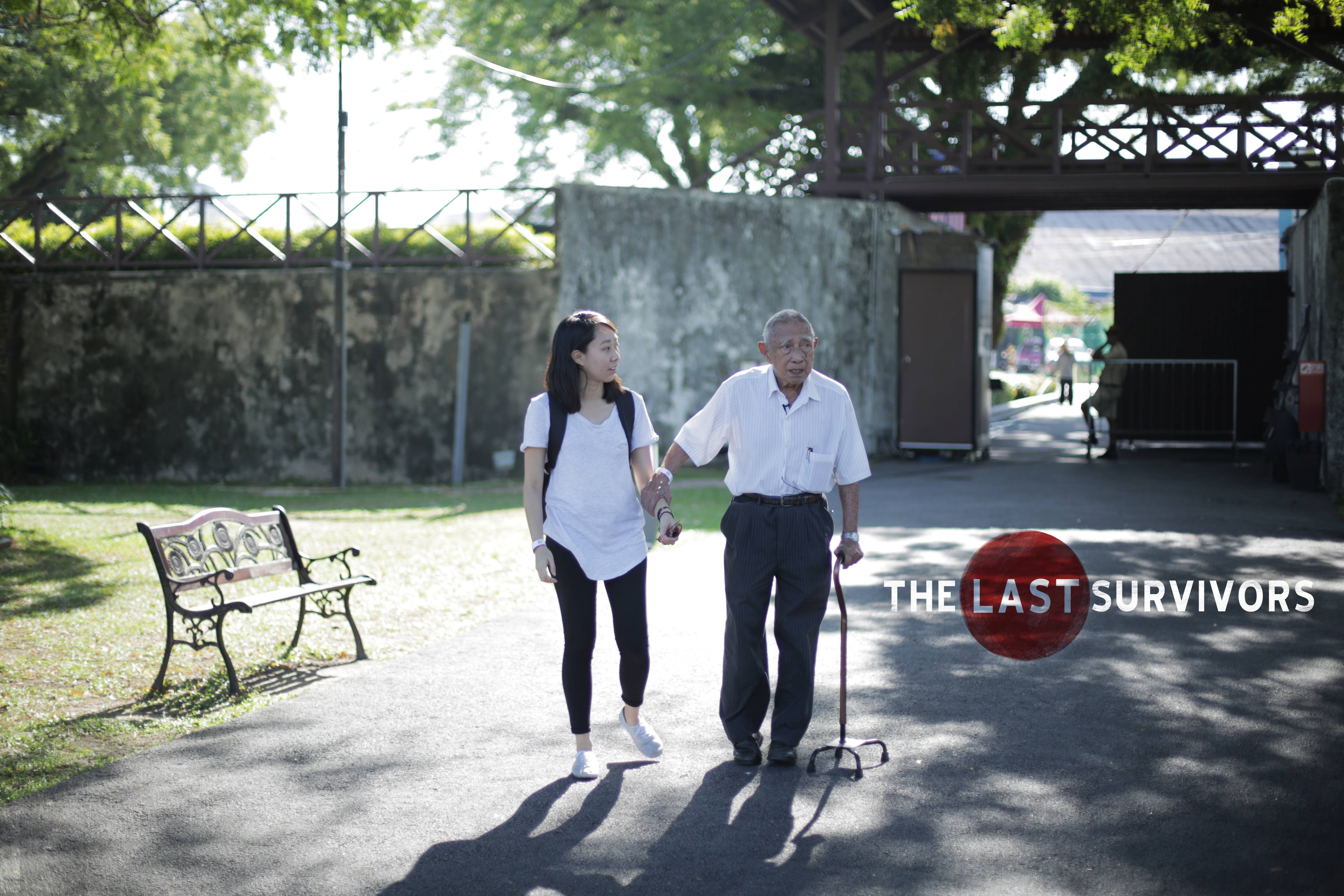IT has been six years since drummer Arthur Kam left Malaysia for the famed Berklee College of Music in Boston, the United States, and subsequently, the bright lights of New York. There, he became part of a live music scene which was unlike anything he had ever experienced.
His fellow musicians were all insanely talented. Trends were changing every month, and audiences appreciatively lapped up what the performers threw at them. While he knew the scene in Malaysia would probably never match up to one of the most popular cities in the world, he hoped things would’ve at least improved after six years. They hadn’t.
“I don’t think it’s healthy to maintain the pace we’re on at the moment, because people are eventually going to get tired and look for music elsewhere,” said Kam, 25, two months after his return to Malaysia. “We’re still playing the same old songs!”

After six years in the US, Kam is finally back home in Petaling Jaya, where he and his siblings run a music business. — Photo: YAP CHEE HONG/The Star
While the sentiment might make him sound like a snob, Kam is far from one. Despite spending most of his life being touted as a child prodigy, and being the first drummer outside the United States to win Modern Drummer magazine’s Undiscovered Drummer title in 2008, Kam remains remarkably down-to-earth.
But he simply cannot turn a blind eye to the approach Malaysian musicians have towards music anymore, not after what he experienced in the US. There, he said, young working musicians are much more aware of the hardships they have to face in their initial years on the scene.
“Young musicians would travel for hours to play a gig for free, and even then, sometimes there would be no one in the audience,” said Kam.
Because of the level of competition spurred by these young musicians’ passion and dedication to their craft, the standards are always extremely high; and audiences in turn are constantly exposed to world class performances.
Now that he’s back, after his US visa ran out, Kam hopes to slowly inspire a “shift in mentality” that will create the same musical ecosystem he was a part of in New York.
Going to America
Jazz and R&B came from America, and the best way to understand how to play a type of music is to go to where it originated from.”
Even though Berklee has produced some of the world’s greatest modern musical minds, from Quincy Jones and Sadao Watanabe to John Mayer and Steve Vai, and even a few pop stars like Meghan Trainor and – oddly enough – Psy, Kam doesn’t make a big fuss of having studied there. He said as long as you meet the college’s requirements, and have enough money, you’ll get in.
What was more important for him was to study in the US, where his favourite musical genres were born.
“Jazz and R&B came from America, and the best way to understand how to play a type of music is to go to where it originated from,” said Kam. “At the same time, I wanted to know how I would fare in the US.”

Kam preparing to perform with Jacky Cheung at a private concert in Hong Kong. — Handout
While Berklee was his training ground, New York would be his battlefield. He moved there after completing his degree in Contemporary Writing and Production, eager to put his new-found skills to practice in probably the most competitive music scene in the world.
“New York is a really tough place to be. It’s a city of hustling and hard work. There are all sorts of people there, and musically, each area is different. In the subways, for example, you see the struggles of the people, and how they relate to music,” he said.
The fact that every musician in New York works hard to stand out actually makes it harder for them to make money, even when compared to Malaysia, said Kam.
He said some venues don’t pay the musicians directly. The musicians only take a percentage of the door sales, or are even forced to pre-purchase tickets and re-sell them at a higher price. Some even pay venues to let them play, then negotiate terms to get a cut of the food and beverage revenue.
“Because of this harsh reality, everyone there takes music a lot more seriously. Truth is, you’d probably make more money busking on the streets where you can make up to US$200 (RM815) a day,” said Kam.
“It’s not Hollywood. It’s nothing like what you see in the movies.”
Others on the scene played at weddings and private events, while some even took odd jobs to pay the bills, all to fund their passion for performing live music. Kam himself took up several recording jobs (including one with Malaysian singer Irma Seleman) which were recommended to him by others on the New York scene.
The difference in Malaysia, said Kam, is that musicians often get lulled into doing music as a nine-to-five career. It’s more about having a steady job than pursuing their passion, whatever the cost.
But because fewer musicians are pushing the envelope in terms of live music, fewer people are willing to pay to watch it. Now more than ever, said Kam, Malaysian musicians need to take care of their craft. It’s up to them to make audiences fall in love with live music again.
Building a career
The shows weren’t open to public, but even then there were fans waiting outside just to get a glimpse of him walking into the building. It was that crazy!”
Kam definitely knows a thing or two about being dedicated to a craft. He has been performing since he was 7.
“Even back then, I was expected to behave like a professional, and it was really harsh at times. I would get yelled at for the slightest mistakes,” he said.
By the time he graduated from secondary school, Kam had played with pretty much every big name in the local music industry – Datuk Siti Nurhaliza, Jaclyn Victor, Zainal Abidin, M. Nasir, Faizal Tahir… the list goes on and on. And when he was in New York, he even managed to work with Cory Henry, one of the core members of Snarky Puppy, the highly-acclaimed, Grammy Award-winning instrumental ensemble.
But probably his biggest gig so far is one that hasn’t even fully materialised. Kam said he was tapped to play for Hong Kong superstar Jacky Cheung on a world tour, but sadly, his involvement was cancelled due to a change in Cheung’s management.

Cheung invited an 11-year-old Kam on stage at a concert in Malaysia to play the percussions. He had learnt about Kam’s talent through Kam’s sister, Genervie. — Handout
Kam got the gig thanks to his YouTube channel. He had been uploading some stuff just for fun. “People seemed to like the first video I put up. I thought since they enjoyed it, and it could help a bit with marketing, why not keep doing it?”
Putting videos up on YouTube has also become something of a creative outlet, allowing him to showcase more of “the creative side of what’s going on in my mind”, compared to the session work he does for other artistes.
Cheung’s music director at the time came across one of those videos – a cover of the rhythmically complex song System, by British soul/R&B duo Brotherly – and immediately offered Kam the job as Cheung’s live drummer. It would’ve been a nice reunion as years ago, during a concert in Malaysia, Cheung invited a young Kam on stage to play the percussions. Kam’s sister, keyboardist/violinist/music director Genervie, was playing for Cheung at the time.
Even though the world tour gig didn’t work out this time, Kam was still able to work with Cheung on a couple of private shows, one in Hong Kong and another in Singapore.
“The shows weren’t open to public, but even then there were fans waiting outside just to get a glimpse of him walking into the building. It was that crazy!” said Kam.

Kam posing with Cheung at a post concert after-party. — Handout
On the plus side, Kam will be on the scene in Malaysia for the foreseeable future, during which he’ll be working with Genervie. Their latest project was a song they produced for Dayang Nurfaizah.
But Kam isn’t one to dream up big, grandiose plans to turn the Malaysian music scene around. All he really wants to do is play the drums, make amazing music, and keep getting better at it.
“I’ve always believed that if you give music the standard it deserves, and always put the music first over other considerations, everything else will take care of itself.”





Tell us what you think!